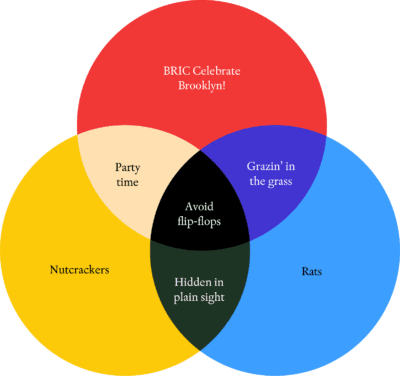“Everything Got Better and Weirder”: On the Books that Changed Our Lives
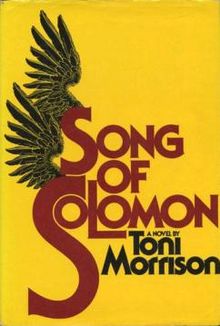
CONNOR GOLDSMITH literary agent at Fuse Literary
Toni Morrison’s Song of Solomon was the book that made me want to work in the arts. It brought all the magic of mythology and folklore, a childhood obsession of mine, into a modern context with so much stark, painful weight and power. It opened my eyes to what a novel could make possible.


EMILY GOULD author of Friendship, co-founder of Emily Books
I first read The Cutmouth Lady by Romy Ashby when I was around 20 years old. Something about its mysterious, sad, sexy mood still haunts me all these years later. It’s a coming of age story, I guess, about a girl who goes to live in Japan as a teenager and goes to a strict all-girls school and realizes she’s gay. Writing a story or a novel that’s capable of capturing a mood, place, and time of life like that is something I’m still hoping to attain, but this was the book that made me thing I could try to do it.


JAIME GREEN writer, host of the Catapult Podcast
Super Flat Times by Matthew Derby. Growing up and in college, the books I enjoyed reading were pretty straightforward novels. But when I tried to write like that in my fiction classes—plot-driven contemporary realism, I guess—it never seemed to click. “I want to write things like I like to read,” I told my thesis advisor, of whom I was terrified. “I don’t think that’s how you write,” she replied, with terrifying wisdom. Then, the summer before senior year, the summer before my fiction thesis was to be written, I stumbled across Super Flat Times in the college bookstore. I picked it up on a whim, and it basically exploded my brain. The stories were weird, not just in plot and conceit but in how they were told. The book was hazy and surreal but full of very real feelings, like a disconcerting dream. I never ended up writing stories that looked or felt like Derby’s hypnagogic dystopia, but his book unlocked a door. Something about the shape of its heart matched what I realized I wanted to do.


NICK GREENE former editor at Simon & Schuster, now Business Development at Atavist
The Black Notebooks: An Interior Journey by Toi Derricotte. The really short version of this short memoir is that Derricotte is black but light enough to pass for white. This book was the first time I’d seen someone so perfectly capture how, to people like me, America’s race problem is less an abstraction than a war within myself. I remember having to lie down and stare at the ceiling every once in a while to unwind


RAHAWA HAILE writer
Without hesitation: Amy Hempel’s The Collected Stories. Because musicality in short stories is nothing without substance when one’s goals are brevity and devastation.


DANIELLE HENDERSON author of Feminist Ryan Gosling
Norman Mailer, The Executioner’s Song. I read it when I was 18, back when I still judged books by their heft, and plucked it off the shelf because it looked long enough to be interesting. The true story of Gary Gilmore—a convicted murderer who fought for his own execution—is disturbing to say the least, but it was the first time I realized the terror and heartache of living could be pressed into a compelling journalistic narrative.
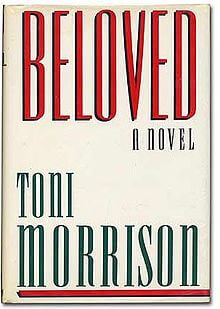

EMILY HUGHES social media at Penguin Random House
Beloved by Toni Morrison: I read it for the first (but not last) time when I was 19, and I distinctly remember thinking it should be required reading for every human. It’s a book that can teach you empathy in a way you’ve never grasped it before while simultaneously transforming your understanding of what a novel can be, and on top of that, the writing is peerless.




VICTOR LAVALLE author of The Devil in Silver
Children of the Kingdom by T.E.D. Klein. This novella takes place in New York City during the infamous blackout of 1977. It’s a great horror story, with a chilling alternate explanation for the cause of the blackout, but it’s also captures my hometown in an era when monsters were the least of its problems. I’d never seen the place written up with such clarity and painful honesty and I loved it.
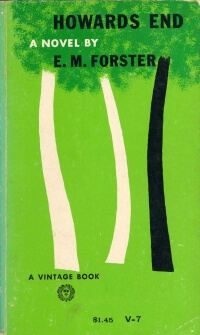

MICHELLE LEGRO culture editor at The New Republic
I can tell you right now which book changed my life: Howard’s End by E.M. Forster. Howard’s End was the first book I read twice, deeply, and made me understand that I would be reading this book for the rest of my life, that each character was the id of some future and past self. It was the first book that made me realize that the best books can compel us to read them again and again.
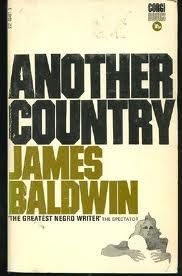

JONATHAM LETHEM author of Dissident Gardens
James Baldwin’s Another Country. It showed me that there were no secrets that fiction couldn’t tell about the world, if it was courageous enough, and that the lives of the people I saw around me might be just as real as any other.
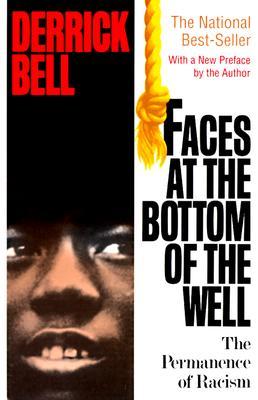

SYREETA MCFADDEN writer-editor
It’s always two for me. Song of Solomon by Toni Morrison and Faces at the Bottom of the Well by Derrick Bell. But, if I have to choose between the two, it’s Derrick Bell always. Faces at the Bottom of the Well is a collection of essays, legal critique, and storytelling from the late law professor, who famously resigned his tenured position at Harvard Law School in 1992 in protest of Harvard’s piss-poor policy of hiring black women faculty. It is an accessible entry point into the study of critical race theory, and unpacks the function of racism in modern American society within the law. It straddles magical realism, as well as critical discourse through his fictional debates with Geneva Crenshaw (whose real life double is the one and only Kimberlé Crenshaw). Through allegories and fables, it helped me build a language to deconstruct the machinery of racism in its application through the law as well as the law’s disproportional effects on black Americans for debates we’re still having today nearly 20 years after I read this book.
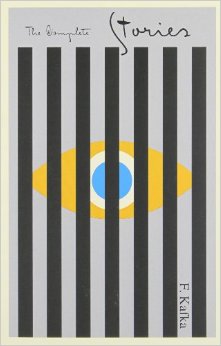

LINCOLN MICHEL author of Upright Beasts, editor at Gigantic and Electric Literature
Franz Kafka: The Complete Stories. Before I read Kafka, I thought I was supposed to read for simple themes and specific messages, the kind that could be reduced to five paragraph essays. But these stories showed me that great fiction is expansive, emitting many meanings and teaching new ways of seeing reality. Kafka taught me that art isn’t a mystery to be solved, but a means of opening up the mysterious inside you.


ELIZABETH MINKEL writer at The Millions and The New Statesman
At 18, I was ready to drop everything and move to New York to sing jazz. But then I stumbled upon Geoff Dyer’s But Beautiful, a series of fictionalized vignettes about jazz greats, and instead of falling deeper for the music, I fell for the words—I remembered how much I’d always loved books, and I’ve been trying to figure out what makes them work ever since.




KEVIN NGUYEN editorial director at Google Play Books
Joshua Ferris’s The Unnamed is the only perfect novel I’ve ever read. The somewhat mixed critical reaction to it made me realize that everyone is always wrong.


DANIEL JOSÉ OLDER author of the Bone Street Rumba series
I would have to say Bloodchild by Octavia Butler. My seventh grade teacher gave it to me for no apparent reason. Inez Middleton at Boston Latin. She had no idea I would go on to write science fiction and about race and power.


ANNE HELEN PETERSEN writer at BuzzFeed News
Oh, this is a good one! Heavenly Bodies: Film Stars and Society by Richard Dyer introduced me to star studies and, in effect, my current life. No one is smarter on the way that star images, especially the way they reflect our contradictory ideologies at a given moment in time. The chapter on Marilyn Monroe is arguably the best thing ever written on a star.


HELEN PHILLIPS author of The Beautiful Bureaucrat
“The Nightingale and the Rose” by Oscar Wilde. This short story/children’s tale by Oscar Wilde was the first piece of literature that ever made me cry. Someone makes the ultimate sacrifice and the world is completely indifferent. My mother read it to me when I was six; I was so beside myself with despair after hearing it that I had to run off and be alone in my room.


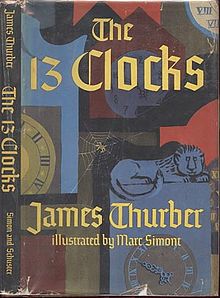

MIRIAM WEINBERG editor at Tor
Obviously I have pondered and discarded basically one million titles—but I think I’m sticking with: The Thirteen Clocks. I have intensely strong memories of many childhood reads of Many Moons, a picture book written by Thurber, and yet I only discovered this title later—found completely by accident in a used bookshop on a day filled with melancholy. It has the wordplay of The Phantom Tollbooth, the longing and nature of The Once and Future King, the dense riddles of a less smug Prufrock—and the love of storytelling, the disconcerting darkness and a reminder of the power of the fantastic.
You might also like 














